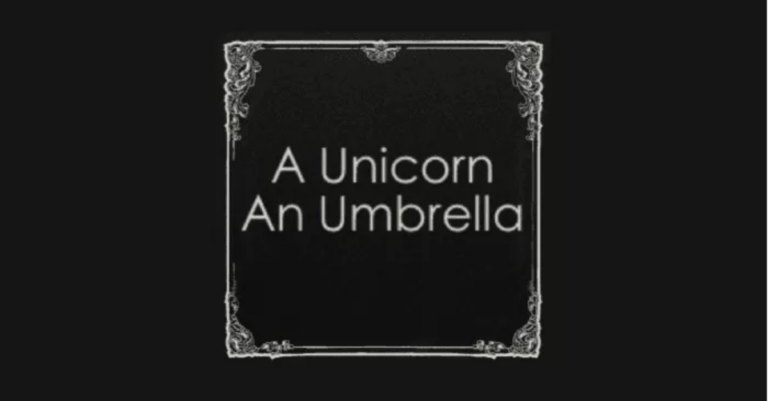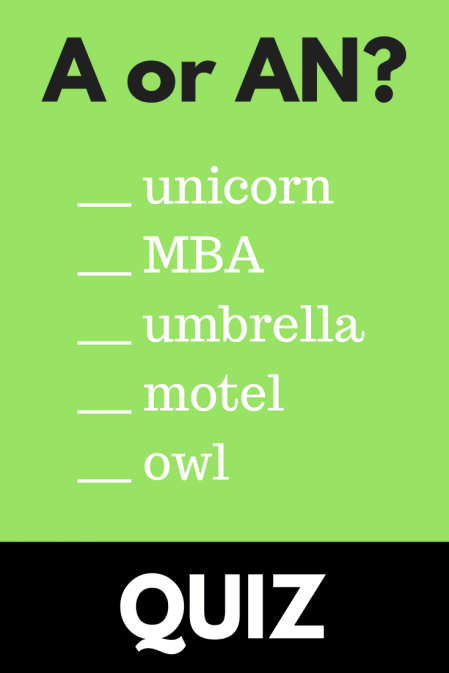A lot of people learned the rule that you put “a” before words that start with consonants and “an” before words that start with vowels, but it’s actually more complicated than that. For example, here’s Matthew with a question:
I’ve been wondering if it is actually “a hour” or “an hour.” “An hour” sounds more correct, but “a hour” reads more correct to me. I’m just curious what it should be.
The rule is that you use “a” before words that start with a consonant sound and “an” before words that start with a vowel sound.
Should You Use ‘A’ or ‘An’?
So to answer Matt’s question, “an hour” is correct, because “hour” starts with a vowel sound. People seem to ask most often about words that start with the letters H and U because sometimes these words start with vowel sounds and sometimes they start with consonant sounds. For example, it is “a historic monument” because “historic” starts with an H sound, but it is “an honorable fellow” because “honorable” starts with an O sound. Similarly, it is “a Utopian idea,” but “an unfair world.”
The letters O and M can be tricky too. Usually you put “an” before words that start with O, but sometimes you use A. For example, you’d use A if you were to say, “She has a one-track mind,” because “one-track” starts with a W sound. Similarly, you’d say, “She has an MBA, but chooses to work as a missionary,” because “MBA” starts with a vowel sound and “missionary” starts with a consonant sound.
Use “a” before words that start with a consonant sound and “an” before words that start with a vowel sound.
Other letters can also be pronounced either way. Just remember it is the sound that governs whether you use “a” or “an,” not the actual first letter of the word.
One complication is when words are pronounced differently in British English and American English. For example, the word for a certain kind of plant is pronounced “erb” in American English and “herb” in British English. So the proper form in America is “an herb,” and the proper form in Britain is “a herb.” In the rare cases where this is a problem, use the form that will be expected in your country or by the majority of your readers.
‘A Historic’ or ‘an Historic’?
While we’re talking about different pronunciations, let’s talk about “a historic.” Some Americans argue that it should be “an historic,” and one of the most contentious interactions I had at a book signing was over this point, but I come down firmly on the side that says it should be “a historic event.”
Here’s my reasoning: Most people pronounce the H in “historic,” and there’s nothing special about the word. So if it starts with a consonant sound—an H sound—it gets an “a” in front of it like all the other words that start with a consonant sound.
In some regions, people do drop the H. Linguists call this an unvoiced H, and in grad school, I had a professor from Boston who would say “istoric” instead of “historic. (He’d also say “uman” instead of “human.”)
So if you say “istoric” or you grew up in a region where everyone says “istoric,” it’s reasonable that you might think it should be “an istoric” because to you, the word starts with a vowel sound. But, that’s not the common, standard pronunciation in most of the world, so unless you’re writing for a regional publication and all your readers call things “istoric,” it’s not the correct choice.
If you’re feeling argumentative about this point, I’ll direct you to the website (The Slot) of the late, great Washington Post copy editor, Bill Walsh, which has an exhaustive review of how different style guides deal with this word. But you should know that after reviewing many style guides, he also stood behind “a historic” being the correct choice.
For more on this topic, I address the word “historic” in greater depth in this post.
Definite and Indefinite Articles
“A” and “an” are called indefinite articles, and the is called a definite article. The difference is that “a” and “an” don’t say anything special about the words that follow. For example, think about the sentence, “I need a gum drop.” You’ll take any gum drop—just a gum drop will do. But if you say, “I need the gum drop,” then you want a specific gum drop. There must be something special about that one, specific gum drop you are requesting. That’s why “the” is called a definite article—you want something definite. At least that’s how I remember the name.
That’s your Quick and Dirty Tip: It’s the sound of the next word, not the first letter of the next word, that determines whether you want “a” or “an.” Consonant sounds call for an “a,” and vowel sounds call for an “an.”
Additional Reading
Review by The Slot of “a” and “an” Before “Historic”
Image from Notestagram





